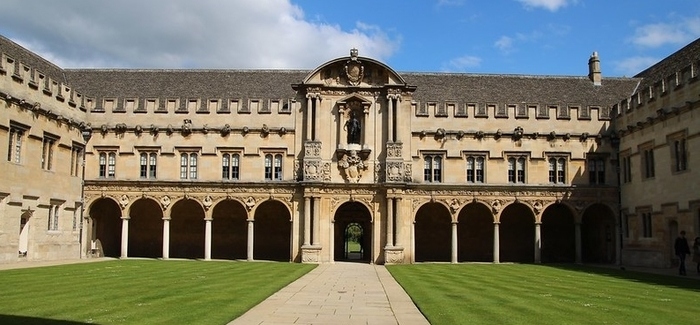After receiving the QS Academic Scholarship (worth US$10,000) in 2012, Indian student Rajesh Kumar headed to the UK’s University of Glasgow to complete an MRes in Biomedical Science. Having thoroughly enjoyed both the course and the wider research environment offered by the UK, he was keen to stay on and find a PhD program.
He’s spent the past six months immersed in researching PhD projects, writing proposals, applying for PhD funding and seeking advice, and has been successful in receiving offers of places at a number of the UK’s leading universities.
Now all set to start a fully funded PhD program at the University of Sheffield, as part of a research collaboration with the University of Oxford, Rajesh shares his advice on how to find a PhD, how to secure PhD funding, and how to choose when faced with a confusing selection of options.
1. Identify your research interests
The first important step, Rajesh says, is to gain a clear understanding of your own research interests – which in his case are in the field of stem cell biology and regenerative science. Studying an MRes certainly helped him get a better idea of the “driving questions” he wanted to help answer, as well as giving him a “flavor” of what to expect from a PhD. The MRes, or Masters by Research, is a kind of “squeezed PhD”, as Rajesh puts it, often specifically designed to prepare students for PhD-level research.
2. Look for relevant PhD projects
Once you’ve identified your research interests, you can start searching for relevant PhD projects, Rajesh says. He suggests using websites which advertise PhD studentships such as Nature.com and FindaPhD.com, as well as consulting the department websites of universities you’re especially interested in. Here, he says his MRes supervisor and lab-mates were helpful sources of information and inspiration, suggesting different approaches to finding out about relevant PhD projects and supervisors.
3. Contact supervisors and write proposals
Having identified a list of relevant PhD projects with openings, Rajesh then began contacting supervisors and departments to find out if he might be suitable for each position. He also sent out research proposals of his own, which he says received a very positive response – so far resulting in offers of PhD positions at the Universities of Oxford, Cardiff, Glasgow and Sheffield, as well as invitations to take on research assistantships at Leicester and Cambridge.
4. Apply for PhD funding
Even after being offered places at such an impressive array of leading UK universities, however, Rajesh faced a new challenge. Most of the PhD projects he’d been invited to join were not fully funded, so he needed to do his own research to find some external PhD funding. “I started researching the different funding organizations in the UK and Europe, writing to them to explain my offers from different universities,” he says. Unfortunately, most of the deadlines for PhD funding had already passed; those seeking PhDs are advised to start the process as early as possible to allow adequate time for this stage.
In addition to the major PhD funding bodies in the UK and at European level, Rajesh also notes that individual universities also often have dedicated funding available for specific PhD projects. “I’m still learning – there are a lot of different ways to find PhD funding!” The ideal situation, he says, is to find a PhD which is fully funded from the start – and this is what he’s succeeded in doing, at the University of Sheffield.
5. Choose the best PhD for you
For Rajesh, the choice was ultimately made easier by the fact that only one of his current options offered full PhD funding – and he was reluctant to wait an extra year in order to pursue additional PhD funding avenues. However, there was a period when he felt a little overwhelmed by all the different options being presented to him, and here he says it helped to consult information such as that provided by the QS World University Rankings by Subject, to get a better idea of the research strengths of each institution. He promises that this is not just because he received a QS Scholarship!
Want more content like this? Register for free site membership to get regular updates and your own personal content feed.












